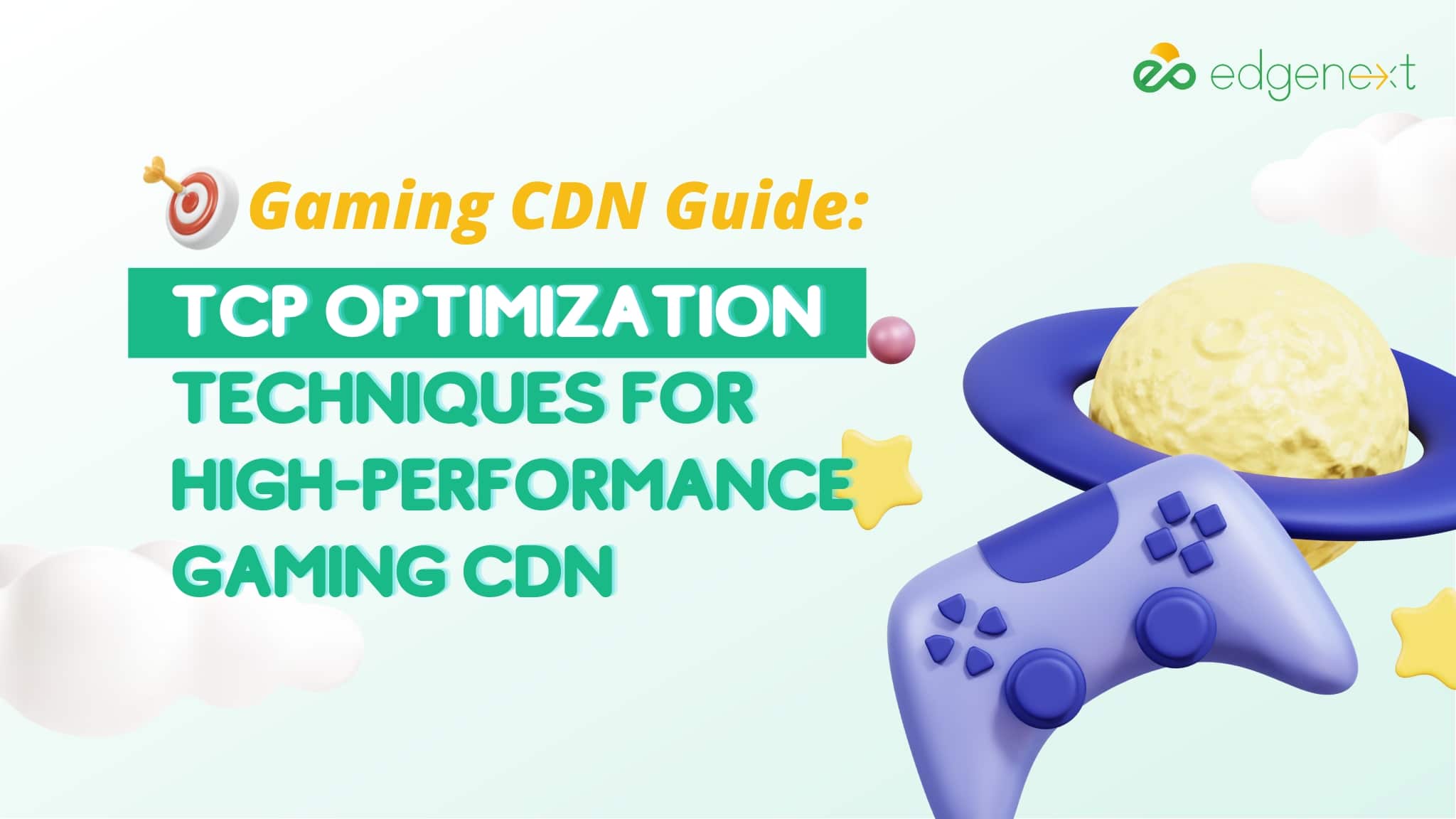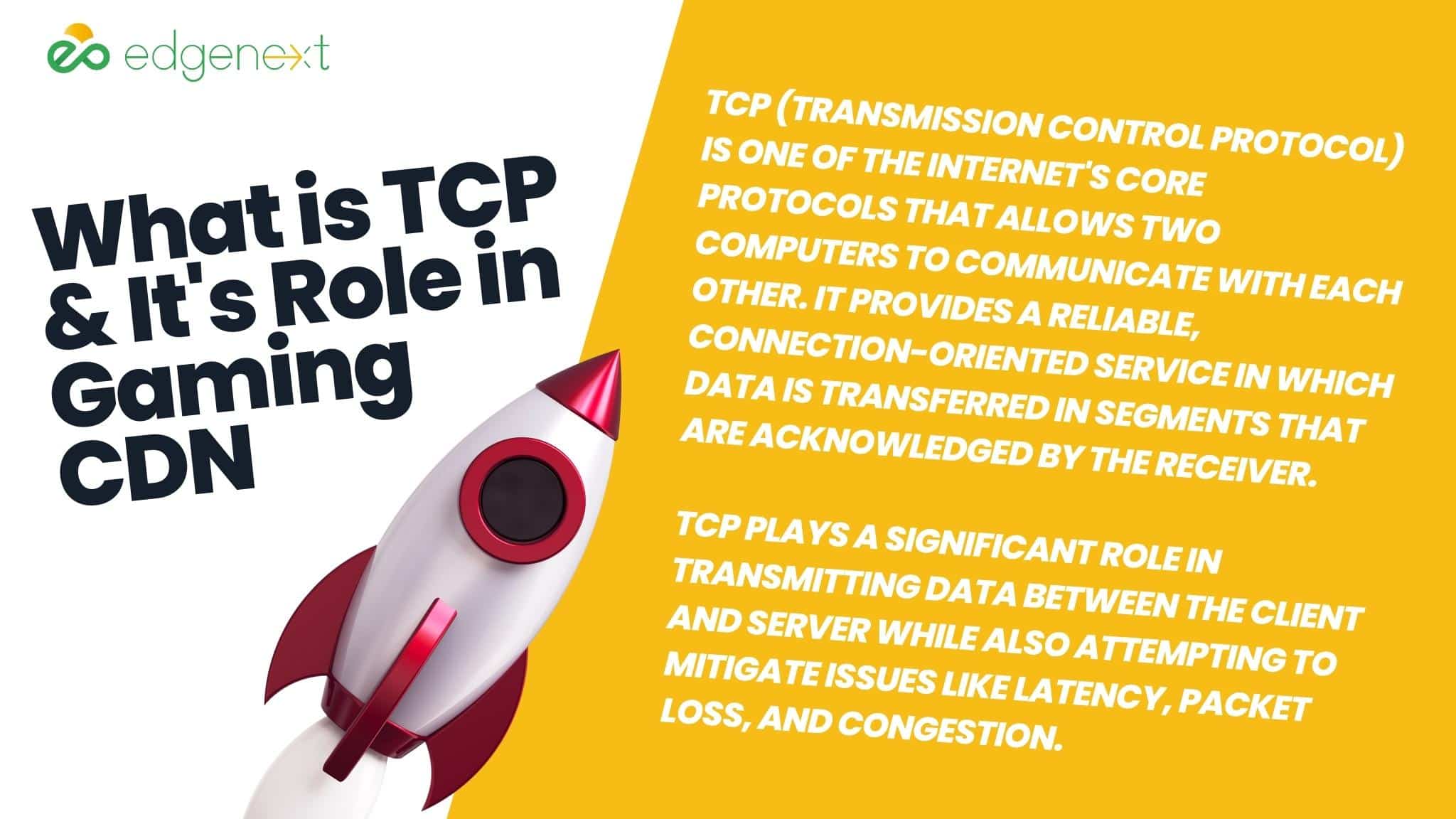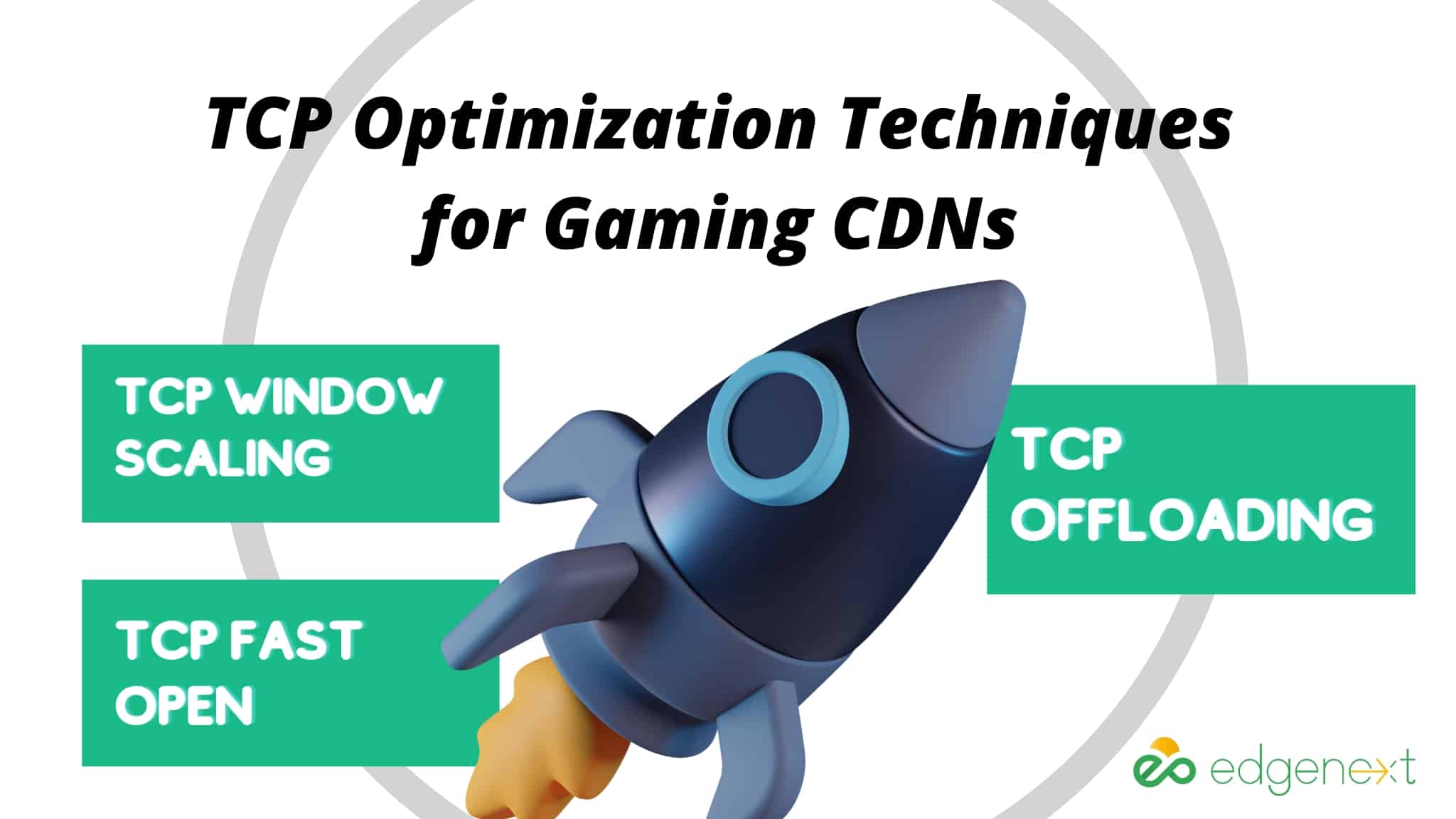
TCP (Transmission Control Protocol) optimization techniques can help improve the performance of gaming CDNs (Content Delivery Networks). These techniques include congestion control, packet loss recovery, window scaling, and selective acknowledgments. Additionally, utilizing Fast Open and Low Extra Delay Background Transport features can reduce latency and optimize data transfer to ensure a smooth gaming experience. With these tactics in place, gaming CDNs can provide high-performance streaming capabilities for their users.
I. Introduction
II. Understanding TCP and its Role in Gaming CDNs
III. TCP Optimization Techniques for Gaming CDN
IV. Best Practices for TCP Optimization in Gaming CDNs
V. Conclusion
Gaming CDNs are increasingly becoming the go-to platform for delivering gamers an interactive, immersive experience. However, for a gaming CDN to provide high performance and reliability, it must be optimized to cope with latency, packet loss, and congestion. This blog post will discuss how TCP optimization can help improve gaming CDN performance by reducing latency and increasing throughput. We’ll explain what TCP is and how it works, describe various TCP optimization techniques that can be used in gaming CDNs, and explore some best practices for optimizing TCP in gaming CDNs.
TCP (Transmission Control Protocol) is one of the Internet’s core protocols that allows two computers to communicate with each other. It provides a reliable, connection-oriented service in which data is transferred in segments that are acknowledged by the receiver. This ensures that any lost or corrupted packets will be retransmitted, which helps maintain an acceptable quality of service (QoS). In gaming CDNs, TCP plays a significant role in transmitting data between the client and server while also attempting to mitigate issues like latency, packet loss, and congestion.

There are various techniques available for optimizing TCP performance. One such technique uses different congestion control algorithms such as CUBIC, BBR, or TCP Vegas to help mitigate network congestion. These algorithms can adjust the rate at which data is transmitted based on the current network conditions, thereby improving the performance of gaming CDNs. Additionally, increasing the TCP window size can improve throughput and reduce latency. Another technique to reduce latency is TCP Fast Open, where data is transmitted before the three-way handshake is completed. Finally, offloading TCP processing to NICs or hardware can further reduce CPU overhead.
TCP Window Scaling is a technique that can be used to improve the performance of gaming CDNs. This technique involves increasing the TCP window size to transmit more data simultaneously, thus increasing throughput and reducing latency. Network congestion is also alleviated by sending larger packets as fewer round trips between source and destination are required. Increasing the window size also has the added advantage of helping prevent packet loss by allowing for more robust error correction mechanisms.
TCP Fast Open is another technique that can be employed to reduce latency when delivering interactive gaming experiences. This involves allowing data to be transmitted before the three-way handshake is completed to establish a quicker connection between two computers. By speeding up this process, gamers experience less lag and faster response times.
Finally, offloading TCP processing to network interface controllers (NICs) or hardware can further improve performance in gaming CDNs. This is done by transferring the tcp connection handling and routing data from the system CPU onto specialized hardware, thereby reducing overall CPU overhead. By taking advantage of such specialized hardware, developers can use more advanced features, such as packet coalescing, flow control, multiplexing, compression, and tunneling which can significantly reduce latency and increase throughput.
Real-world examples of how these techniques have been used in gaming CDN deployments include Microsoft’s Project Natick deployment, which utilized a high-performance networking stack with TCP Fast Open and window scaling algorithms. The result was improved speed due to reduced latency and increased reliability as a result of improved error correction. Similarly, the Nexon group deployed a gaming CDN in South Korea incorporating TCP window scaling for better network performance and reduced lag times. The use of these techniques resulted in improved user experiences with faster loading times and smoother gameplay.

In addition to these techniques, certain best practices should be followed when optimizing TCP in gaming CDNs. Firstly, monitoring and analyzing network traffic is important in identifying any bottlenecks or other issues that may affect performance. Secondly, customizing parameters such as MSS or timestamp options can help improve performance. Thirdly, collaborating with network providers and other stakeholders is crucial in implementing optimal solutions. Finally, developers should also consider offloading TCP processing to specialized hardware whenever possible, as these devices are designed for networking optimization and thus can significantly reduce game system CPU overhead.
In conclusion, TCP optimization is essential for delivering a high-performance gaming experience on CDNs. Various techniques such as congestion control algorithms, increasing TCP window size, and TCP Fast Open can help reduce latency and increase throughput. Additionally, by monitoring traffic patterns and customizing parameters or offloading processing to specialized hardware, developers can further optimize TCP performance in their gaming CDNs. Ultimately, these best practices will provide gamers with an improved experience while ensuring the reliable delivery of content from gaming CDNs.
Reach out to EdgeNext Gaming CDN Expert and start expanding your gaming business 10X today

© 2025 EdgeNext Copyright All Right Reserved